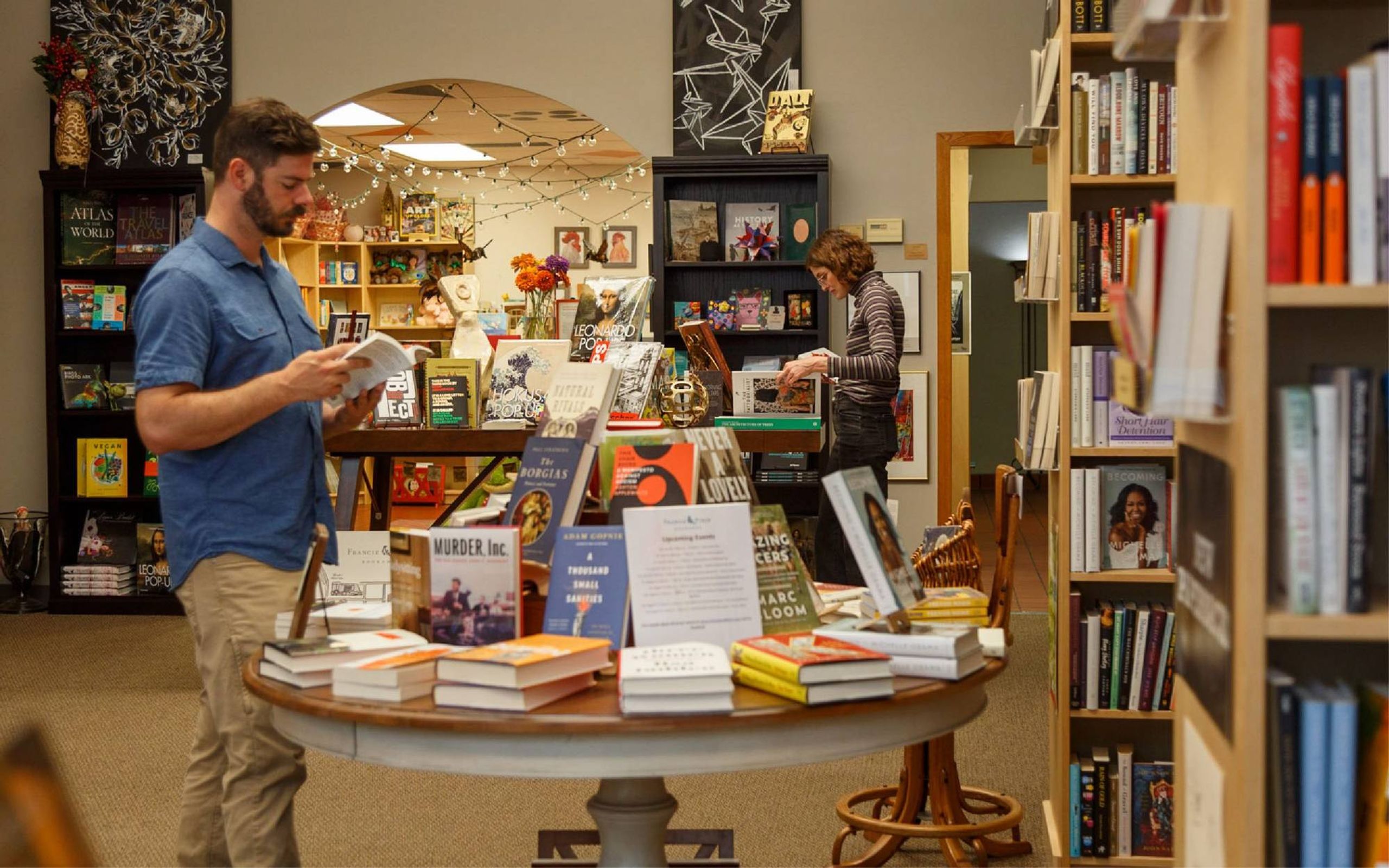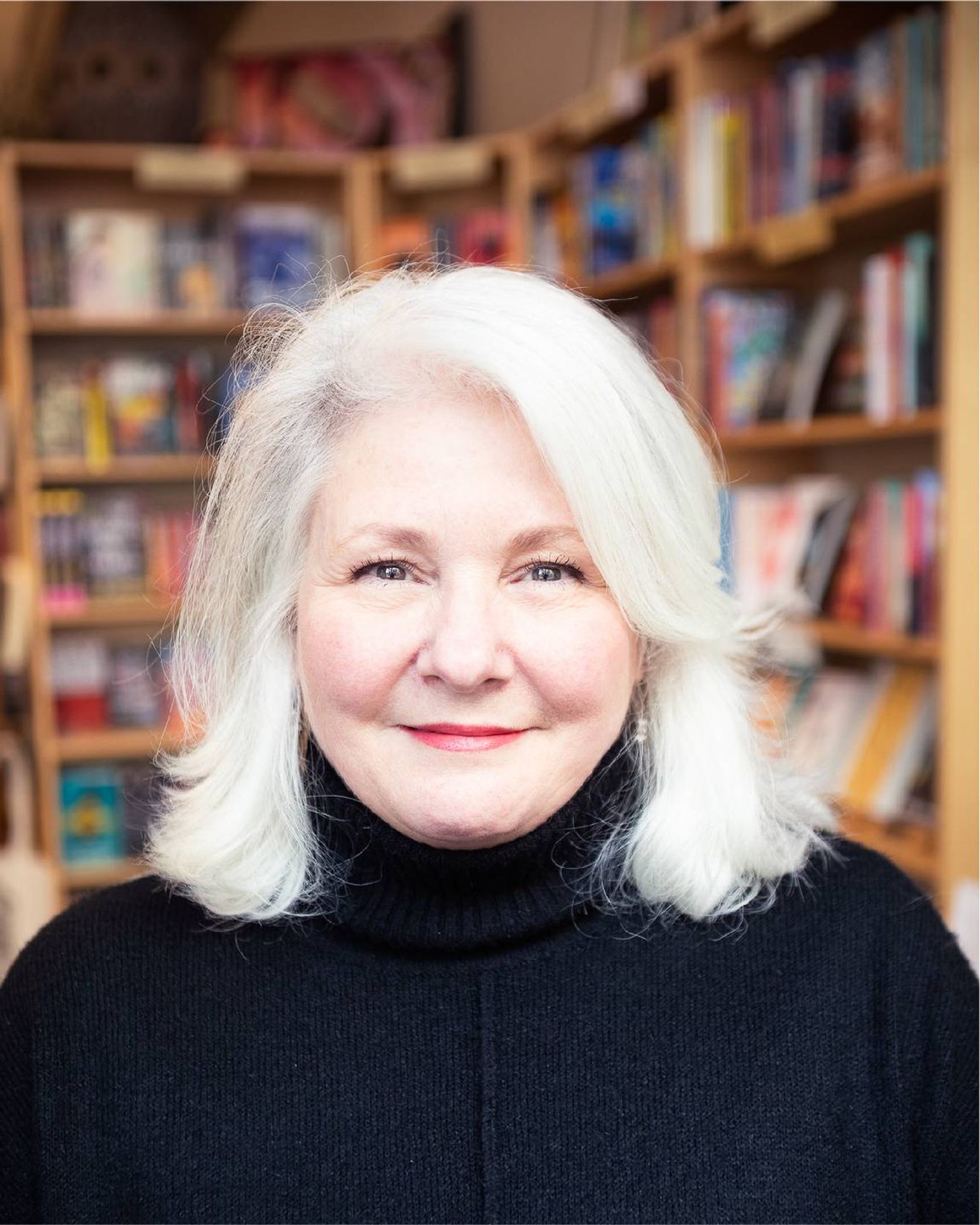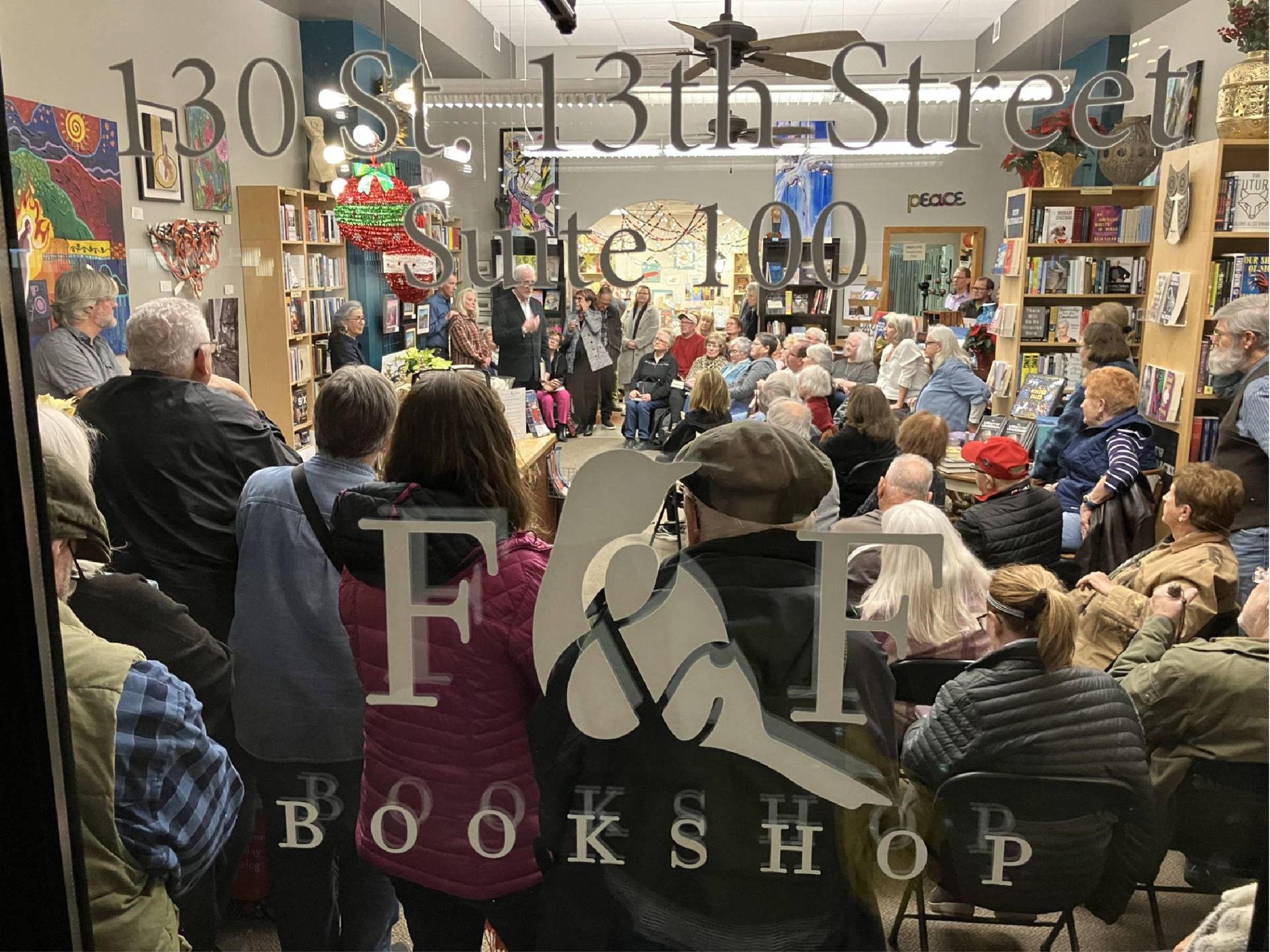Mid-Career Plot Twist: Opening a Bookstore
Cutthroat competitors and razor-thin margins make it perilous to take the plunge, but the allure is hard to resist
Editor’s note: This article is part of Navigating Change, a Next Avenue initiative made possible by the Richard M. Schulze Family Foundation and EIX, the Entrepreneur Innovation Exchange.
Across the whole of America they come: the lawyers and financiers, marketers and architects, librarians (of course) and writers and teachers. In a second — or even third — career, they are bucking conventional economic wisdom and opening bookstores.

Why are so many older workers doing this? "There is a tradeoff between salary and benefits and investing in myself and my community," Jen Morrow, 53, told Publishers Weekly in 2017, when the former government contractor opened Bards Alley in Vienna, Virginia. "People skills come into play as much as business skills."
"There is a tradeoff between salary and benefits and investing in myself and my community."
It's a romantic but daunting vision. Most people switching to bookstore ownership lack an entrepreneurial background. Competition is intense. The hours are demanding. Too many factors seem out of the owner's control. According to the Census Bureau, the number of U.S. bookstores (chain and independent) dropped from 12,151 in 1998 to 5,591 in 2021.
Only recently, Morrow and her staff realized they've been open longer since the pandemic was declared than before it. "That felt amazing," she says. "What's surprised me the most is how many people around here have said thank you for opening, thank you for being here."
Want to go into bookselling? Here's what you may be up against — and how to approach the barriers.
Behemoth competition. "In print books, Amazon has a generally recognized 50% or more of the American market," Publishing Perspectives reported early in the pandemic. The Association of American Publishers, Authors Guild and American Booksellers Association wrote to the Federal Trade Commission in 2020 that "for some industry suppliers, the actual figure may be much higher. . . . Amazon's concomitant market dominance allows it to engage in systematic below-cost pricing of books to squash competition in the book selling industry."
"Our customers have an enthusiasm for small business and us as a community hub."
As an example, independent booksellers pay nearly 60% of list prices for their books, says Liz Young, 68, who left a career with Johnson & Johnson to open Commonplace Reader in Yardley, Pennsylvania, in 2019. Amazon, she says, is paying about 20%.
Best comeback: Cater to your audience. "It's really competing for people's hearts and souls," says Dan Cafaro, 58, who was a reporter and sportswriter, publisher and editor before opening Atticus Books & Music in Fountain Hills, Arizona, in 2022. "Our customers have an enthusiasm for small business and us as a community hub."
That has to be cultivated to keep Amazon at bay. Ten book clubs meet at Bards Alley, which also produces a podcast. In Lincoln, Nebraska, Francie & Finch hosts writer workshops and participates in First Friday Artwalks, a monthly evening stroll through the city's art galleries and other downtown businesses. Young sponsors a writers' group and displays regional arts. In Arizona, Cafaro, who also sells vinyl, sponsors presentations and keeps a $5 cart out front to stimulate sidewalk traffic.
Young is a role model for buying local; her accountant, caterer, security consultant, carpenter, landlord and printer are all within walking distance. "Supporting local business sends the right message and builds a tighter community," she notes.
"Nobody's getting rich at this."
High costs. Books themselves are a large investment for a new store. "A retail store can charge much more for its products," Young says of businesses that sell almost anything but books. "The price is already set on the book, so that's what it sells for." Besides book costs, there's rent — higher in more desirable, highly trafficked locations. Also, margins are tight in publishing.
"Credit card fees really hurt small business," says Morrow, who visited Capitol Hill with colleagues in January to testify as to the increasing hit—up to 3%—that entrepreneurs are taking on this front.
Best comebacks: When seeking the best location, a bookstore consultant or course can be invaluable. These can be found online or through the American Booksellers Association, which sources recommend for its training, business planning and plenty of data to help newbies.

As for margins, experience helps. Books that don't sell can go back to the publisher, Huerta notes, and over time you learn to order a more accurate number. These entrepreneurs have found that creative tie-ins, events and promotions boost sales.
Overall, practice acceptance. "Nobody's getting rich at this," says Cafaro — "at least monetarily." He and his wife have agreed to cut way back on vacations and pricey meals out. "Tradeoffs," he shrugs.
Long hours. "At first, I worked seven days a week, 10 a.m. to 7 p.m., usually alone," says Leslie Huerta, 64, owner of Francie & Finch since 2017. There lies burnout, so she's learned to delegate to a full-time manager and part-time help.
Teen and college-age staff often want game days and date nights off, but adults may demand higher pay and benefits than you can afford. Young has developed a part-time staffing program that includes slow onboarding, a buddy system and higher-than-minimum wages.
A related point is time management and "the energy level this [work] requires," as Cafaro puts it. "You notice as you get older that wearing the hats of marketer, distributor, curator, cashier, bookkeeper and everything else is exhausting." Morrow points out even more tasks the solo owner may take on: permits, payroll, IT, taxes, complaints, insurance, inspections . . . .
"You notice as you get older that wearing the hats of marketer, distributor, curator, cashier, bookkeeper and everything else is exhausting."
Best comebacks: As with the labor problem, the way to beat the jack-of-all-trades problem is delegation. Most of these booksellers assign social media, at least in part, to staff who percolate with ideas. They save for themselves what drew them into the business in the first place — often curating books and interacting with customers — along with a hard business skill (say, cash-flow management or marketing) that carries over from a previous life.
As always, creating new revenue streams can bring in cash that can pay for skilled help with some tasks. Store owners mention subscription boxes, e-commerce sites and working with schools.
Your own assumptions. "I assumed, I'm still young, I don't need a big staff, I could do it myself. That was difficult," says Young at Commonplace Reader. Many owners realize the job is too much without backup.
"At first I assumed I'd be targeting baby boomers like me; young people maybe don't have the money" for new books, says Huerta at Francie & Finch.

Morrow of Bards Alley assumed a small café and wine bar would add to a congenial atmosphere. It did. But after COVID hit and businesses were slow to reopen, "I realized the cost of renewing the licenses, training staff on health and safety, and bringing back food vendors was all too much," she says.
Best comeback: Keep an open mind! With luck, the lesson won't be costly. For instance, "young people are building their libraries," Huerta realized. "Don't discount any demographics." Morrow renovated her café space into a popular children's book area.
With the lessons of life experience, says Cafaro — not to mention the upsides of ownership — you can probably work through the challenges of this second (or third) career. "If it weren't a challenge," he says, "I guess we'd go out and play golf or something."

